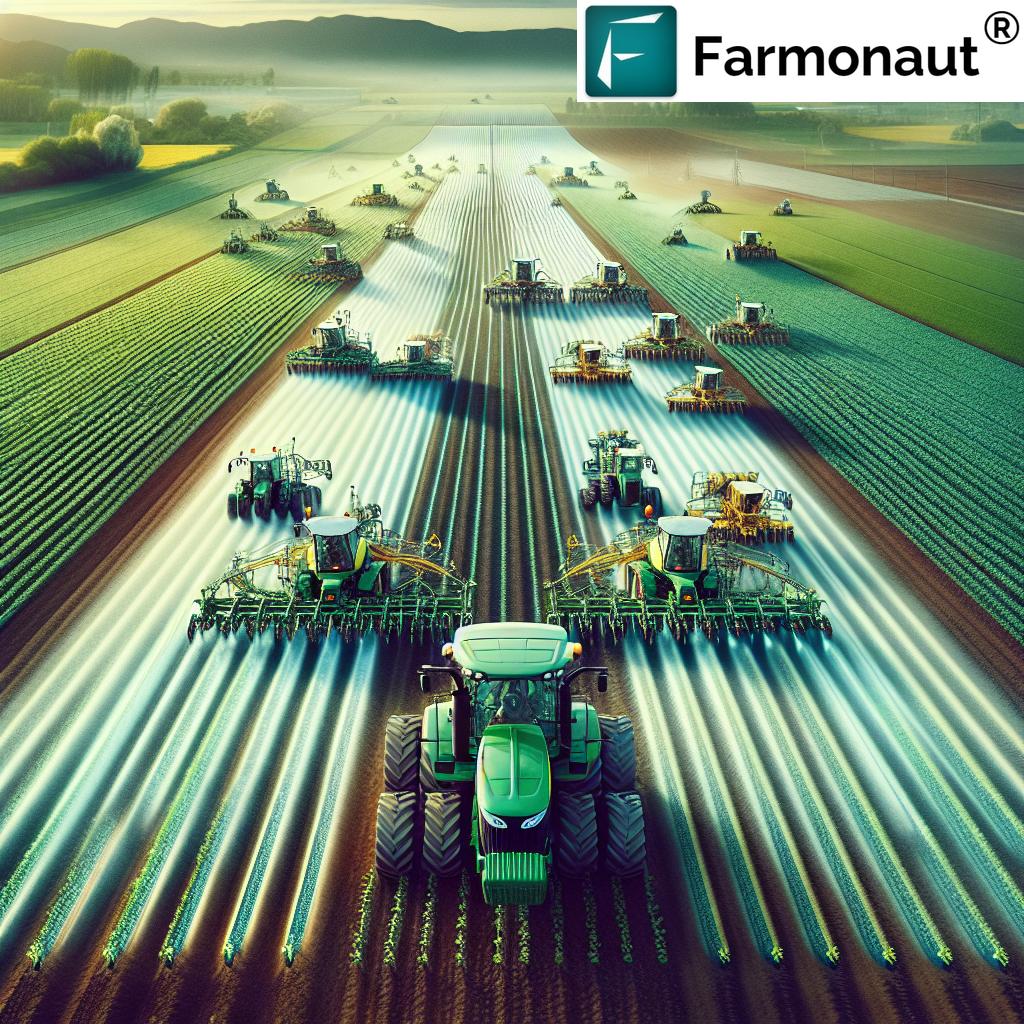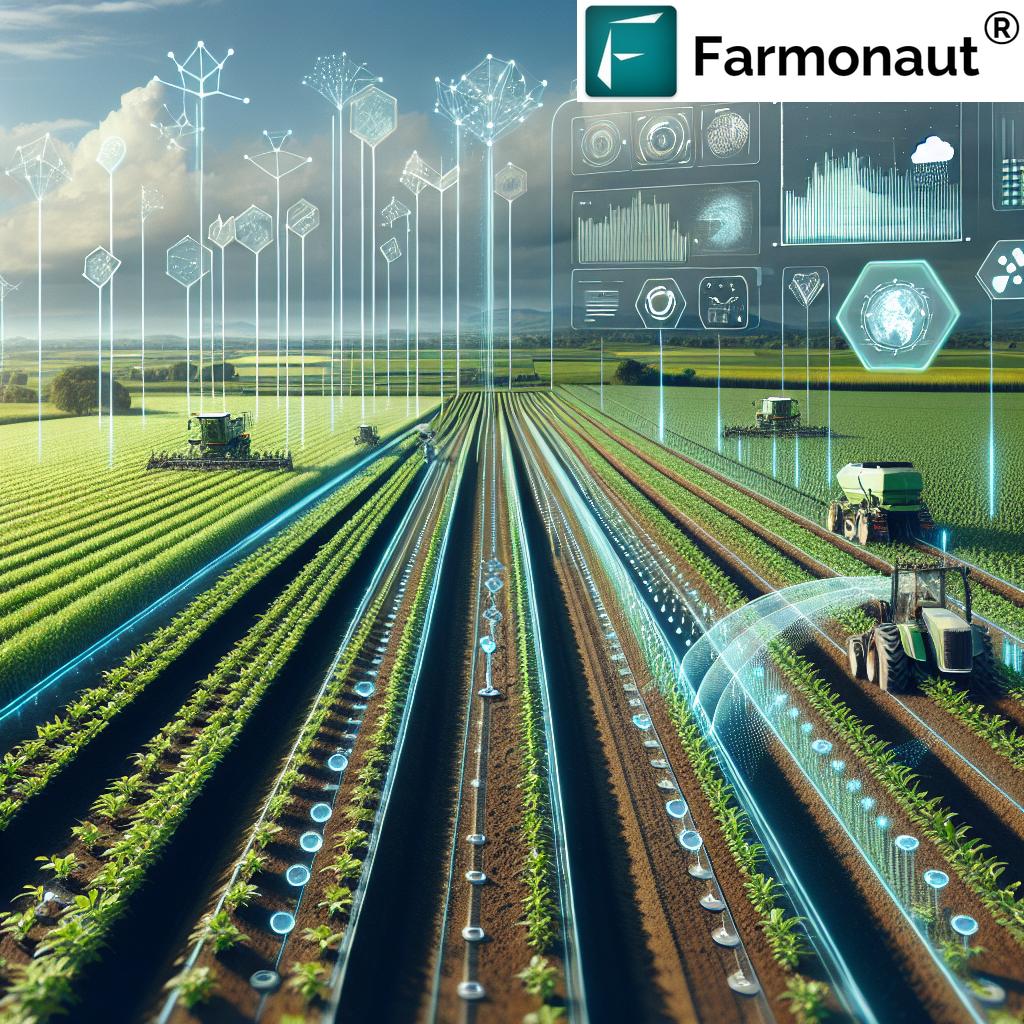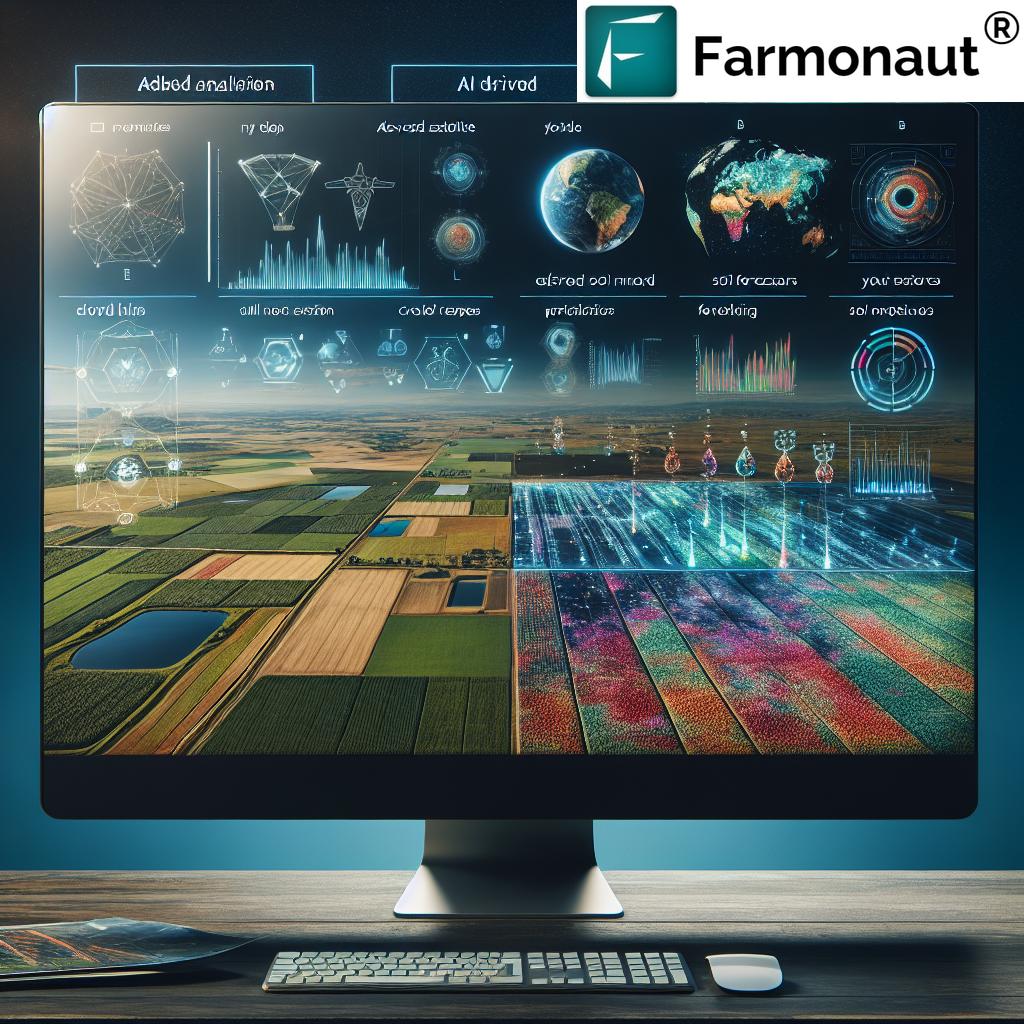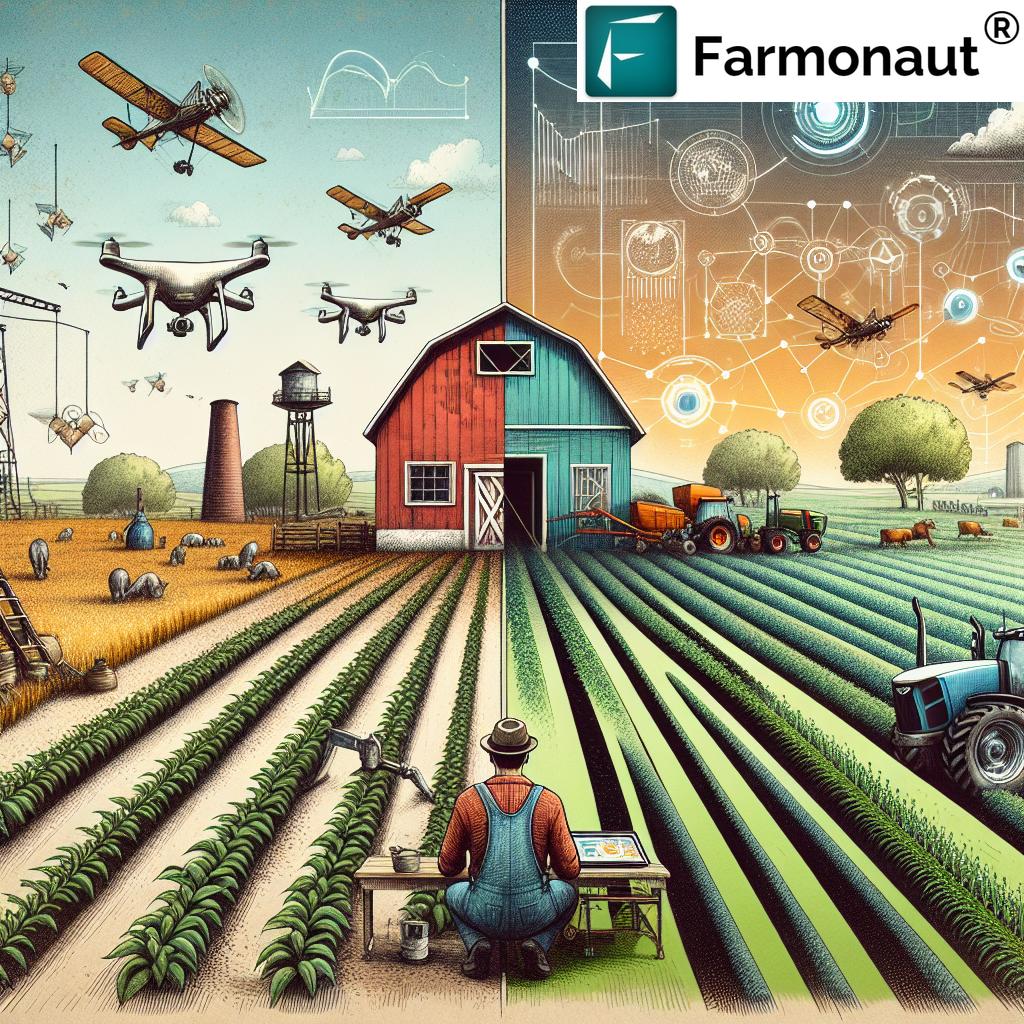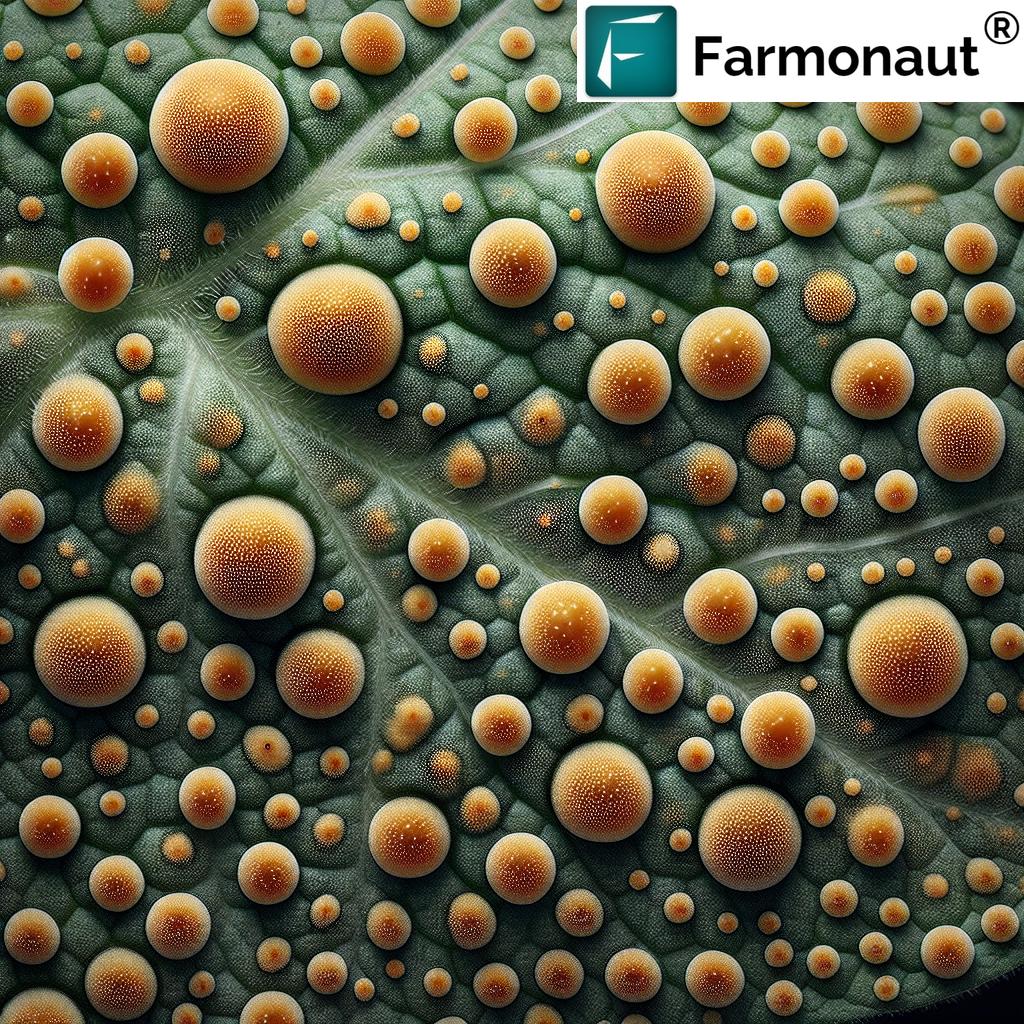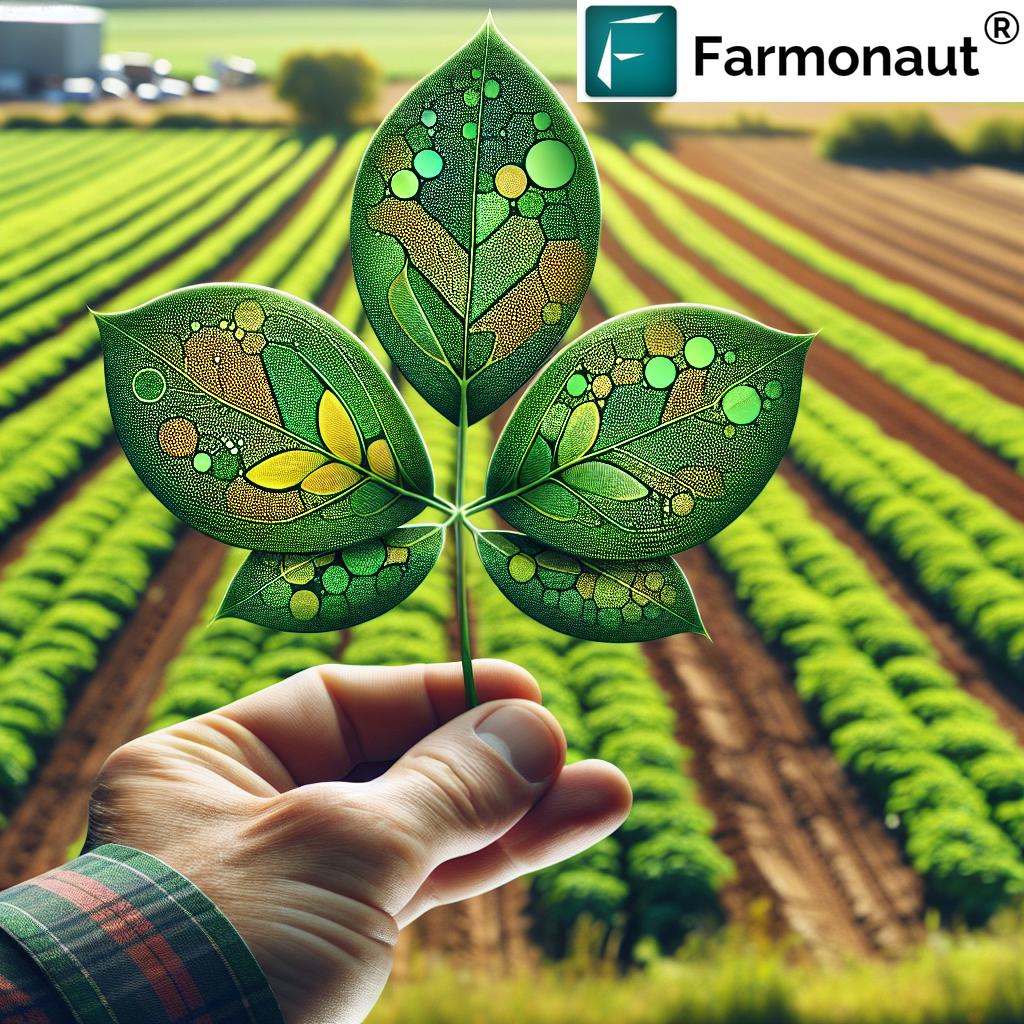Precision Farming Companies: 7 Game-Changers Revealed!
“Precision farming can increase crop yields by up to 30% using AI and data analytics.”
What is Precision Farming? An Innovative Approach in Agriculture
As the world grapples with feeding a growing population, precision farming—also known as precision agriculture—emerges as a beacon of technological advancement and sustainability. At its core, precision farming integrates advanced technologies like AI, data analytics, GPS, IoT devices, and automated agricultural machinery to monitor, analyze, and optimize farming practices tailored to exact field conditions. This modern methodology empowers us, as farmers and agricultural enthusiasts, to do more with less: enhancing crop yields, promoting sustainability, and managing operational efficiency intelligently.
By leveraging data-driven crop monitoring systems, we can observe real-time field variability, apply inputs like water and fertilizer with pinpoint accuracy, and minimize environmental impact. With precision tools, our fields no longer receive generic, one-size-fits-all treatment—instead, each section receives exactly what it needs when it needs it.
Let’s embark on a comprehensive journey through advanced farming solutions, meet the 7 companies leading this revolution, and uncover how these technologies transform agriculture.
Key Technologies Powering Precision Agriculture Solutions
Modern agriculture thrives on a convergence of innovative technologies, blending hardware, software, and cutting-edge scientific principles. Let’s break down the essential tech stack:
1. Satellite Imagery & Remote Sensing
- Satellites provide comprehensive field views via multispectral imaging. This enables detection of subtle crop health changes (using NDVI and other indices), water stress, pest infestations, and nutrient deficiencies.
- Platforms like Farmonaut harness satellites for affordable, scalable monitoring—benefiting farms of any size without heavy hardware investments.
2. Artificial Intelligence (AI) in Agriculture
- AI in agriculture processes massive data from satellites, sensors, and IoT devices. It recognizes plant health patterns, predicts diseases, and recommends interventions for optimized yields.
- Solutions like Jeevn AI Advisory System deliver personalized, data-backed recommendations for each farmer, factoring in hyper-local weather and field variability.
3. Autonomous Machinery & Robotics
- Autonomous tractors and automated machinery revolutionize field tasks—handling planting, fertilizing, and harvesting with minimal human intervention.
- Robotics, like those from FarmWise and Solinftec, tackle labor-intensive challenges such as weeds and pest monitoring with unerring precision.
4. Data Analytics Platforms
- Modern farm management platforms aggregate and visualize complex data, enabling actionable insights for financial planning, crop yield forecasting, and operational optimization.
- Granular’s software and similar farming data analytics solutions empower informed, data-driven decision-making.
5. IoT Devices & Sensors
- In-field IoT devices monitor soil moisture, temperature, nutrient levels, and environmental conditions in real time—ensuring timely interventions and highly targeted resource optimization.
6. Blockchain for Traceability
- Blockchain ensures transparent, tamper-proof tracking from farm to fork—building consumer trust and reducing fraud in food supply chains.
- Farmonaut’s Traceability Solution utilizes blockchain for complete product journey documentation—crucial for regulatory compliance and market differentiation.
7. Drones and Aerial Monitoring
- Drones equipped with hyperspectral cameras rapidly scan fields. Their high-resolution mapping assists in monitoring for pest outbreaks, irrigation needs, and crop performance variability.
- These tools allow precise, timely, and localized analysis—empowering better resource allocation and minimizing input waste.
Together, these advanced technologies have set the stage for a new era in precision farming—one that is smarter, more sustainable, and ultimately, more profitable for all of us.
“Autonomous machinery adoption in agriculture has grown by 25% annually since 2020, revolutionizing farm efficiency.”
Precision Farming Companies: 7 Game-Changers Revealed
Within the swiftly expanding precision agriculture technology sector, several companies have become key players. They shape the future of food systems through their distinct solutions—ranging from autonomous tractors and robotics, to AI-powered analytics platforms and crop monitoring systems. Here’s an up-close look at 7 global leaders and their game-changing impact:
1. John Deere: Integrating Automation & Intelligence in Machinery
- Longstanding Giant: John Deere remains a pillar in agricultural machinery, persistently innovating for nearly two centuries.
- Their equipment—from tractors to sprayers—comes equipped with integrated precision farming solutions, incorporating GPS, proprietary sensors, and AI-driven automation.
- Autonomous tractors, smart sprayers, and automated agricultural machinery streamline triose tasks like planting, fertilizing, and harvesting.
- Result: Significantly boosts operational efficiency, reduces labor costs, and minimizes the environmental impact of farming.
2. AGCO Corporation: Comprehensive Precision Farming Suite
- AGCO Corporation delivers a full suite of advanced farming solutions—including intelligent tractors, combines, and sprayers, all equipped with smart technology.
- These platforms collect and analyze field data to enhance crop management, optimize input applications, and ensure sustainability in farming practices.
- Their holistic approach promotes higher crop yields while reducing operational costs—empowering farmers to thrive in a tech-driven era.
3. CNH Industrial: Integrated Solutions for Sustainable Farming
- Through iconic brands like Case IH and New Holland, CNH Industrial pushes boundaries in technologically driven machinery and equipment.
- Their precision products enable automated planting, efficient harvesting, and seamless field management via integrated data platforms.
- Focus: Sustainable farming practices—CNH’s tech is designed to reduce input waste, improve productivity, and support environmental conservation.
4. FarmWise Labs: Robotics Tackling Weeds & Labor Shortages
- FarmWise specializes in robotics for selective, sustainable farming. Their signature machine, the Titan FT-35, employs AI and computer vision to differentiate crops from weeds and perform precision weeding—drastically reducing the need for chemical herbicides.
- By automating one of agriculture’s most labor-intensive tasks, FarmWise’s robotics reduces labor costs and contributes to environmentally friendly farming operations.
5. Granular Inc.: Software for Smart Farm Operations
- Granular brings farming data analytics to the center stage, providing easy-to-use farm management platforms that support operational planning, financial management, and in-depth crop analytics.
- Their software assists farmers in making informed decisions by aggregating real-time data on conditions, inputs, and forecasted outcomes.
- Result: Improved efficiency, streamlined logistics, and increased profitability through smarter resource allocation.
6. Indigo Agriculture: Biotech Boosting Crop Health & Yield
- Indigo focuses on the microbial ecosystem around crops. Their treatments use beneficial microbes to build stronger, more resilient plants—improving yield and water efficiency even in challenging climates.
- This low-input, nature-aligned approach aligns perfectly with emerging sustainable farming practices.
7. Solinftec: Real-Time Data & Automation from Brazil
- Solinftec harnesses IoT, AI, and robotics to create a holistic platform for field monitoring and resource management.
- Their platform “Alice” acts as a decision-support system, monitoring operations in real time, optimizing inputs, and advancing autonomous field interventions with robotics (e.g., Solix Ag Robotics).
- Result: Enhanced efficiency, less resource waste, and early detection of field issues—bolstering yields and sustainability.
Comparative Table: Precision Farming Companies, Technologies & Impact
| Company Name | Core Technology | Main Solution/Application | Est. Yield Improvement (%) | Est. Resource Efficiency Gain (%) | Sustainability Rating (1-5) |
|---|---|---|---|---|---|
| John Deere | AI, GPS, Autonomous Machinery | Autonomous tractors and sprayers, field automation | 25–35% | 20–30% | 4.5 |
| AGCO Corporation | Smart Equipment, Data Analytics | Integrated tractors, combines, and operational analytics | 22–30% | 18–26% | 4 |
| CNH Industrial | Integrated Data Systems, Autonomous Machinery | Precision planting, harvesting, sustainable field management | 20–28% | 16–25% | 4.2 |
| FarmWise Labs | AI, Robotics, Computer Vision | Automated weeding robots, labor reduction | 10–18% | 15–22% | 4.3 |
| Granular Inc. | Data Analytics, Software Platforms | Digital farm management, operational planning | 15–25% | 16–24% | 4.1 |
| Indigo Agriculture | Biotechnology, Microbial Seed Treatment | Crop resilience, yield enhancement, sustainable practices | 18–28% | 20–28% | 4.6 |
| Solinftec | IoT, AI, Robotics, Real-Time Platforms | Data integration, resource optimization, field robotics | 20–30% | 20–30% | 4.4 |
Benefits of Adopting Precision Farming Technology
The adoption of precision farming solutions yields transformative impacts on every facet of modern agriculture. Let’s spotlight the most compelling benefits:
- Increased Efficiency: Automated systems and data analytics accelerate tasks like planting, monitoring, and harvesting, minimizing manual labor and streamlining operations.
- Resource Optimization: Targeted application of water, fertilizers, and pesticides, reducing waste and environmental footprint—while maximizing output.
- Enhanced Crop Yields: Timely interventions based on real-time field data boost plant health and overall yields.
- Cost Reduction: Efficient input usage and automation help lower operating costs for all types of farms.
- Sustainability: Smart management practices and carbon tracking help achieve sustainability targets, ensuring agriculture complements environmental needs.
- Decision Support: Actionable, data-backed insights from farm management platforms empower us to make better choices and plan for the future.
Combined, these factors allow our farms to thrive in an era of rising demand, variable climate, and increasing economic pressure.
Challenges Facing Precision Agriculture Technology
While the advantages are clear, precision farming adoption isn’t without challenges. Recognizing and addressing these is vital for long-term, scalable impact:
- High Initial Investment: Cutting-edge equipment, sensors, and platforms can require significant up-front capital—posing hurdles for smallholders and emerging markets.
- Data Management Complexity: Processing and interpreting vast data volumes demands specialized skills, robust infrastructure, and ongoing support.
- Integration Issues: Ensuring seamless compatibility between different technologies, equipment, and systems can be complex, potentially leading to operational inefficiencies.
- Training & Knowledge Gaps: Effective use of new platforms and advanced tools necessitates continuous learning, hands-on training, and trusted technical support.
- Connectivity Limitations: Dependence on reliable internet or cellular networks can restrict effectiveness in remote rural areas.
However, new business models—like affordable, app-based farm management platforms, API-driven access, and modular service subscriptions—are helping to lower barriers and promote inclusive, widespread adoption.
Farmonaut: Making Precision Agriculture Affordable & Accessible
We believe real agricultural transformation only happens when even the smallest farmers can adopt precision technology. This vision is at the heart of Farmonaut—a pioneering technology company driving advanced farming solutions through affordable, satellite-based platforms for everyone, everywhere.
How Farmonaut Empowers Farmers
- Satellite-Based Crop Health Monitoring: Multispectral, high-frequency imaging of every field, providing actionable insights on vegetation vigor (NDVI), soil moisture, and other vital metrics. By pinpointing needs, farmers can optimize water, fertilizer, and pesticide use—boosting yields and reducing costs.
- Jeevn AI Advisory System: AI-driven recommendations for irrigation, planting, pest control, and resource allocation—customized for each field’s unique conditions.
- Blockchain-Based Traceability: A breakthrough for supply chain transparency, Farmonaut’s traceability solution (learn more) enables verifiable product tracking from farm to fork, crucial for exporters, food brands, and quality assurance.
- Fleet & Resource Management: Maximizing fleet utilization and logistics—helping large agribusinesses and service providers streamline their vehicle and equipment management for reduced operational costs and increased safety.
- Carbon Footprinting: Track, measure, and reduce environmental footprint with real-time emissions data—supporting ESG goals and sustainability reporting.
- Finance & Insurance Access: Satellite-driven verification for agricultural loans and insurance—speeding up approvals, reducing fraud, and enabling better financial inclusion for farmers.
Farmonaut embraces a subscription-based, modular platform—accessible via Android, iOS, and web apps—making it easy and cost-effective for every farmer to join the precision agriculture revolution.
Farmonaut at a Glance:
- Technologies: Satellite imagery, AI, blockchain, IoT-driven insights, machine learning for real-time, actionable advice.
- Products & Use Cases: Scalable solutions—from small plots to vast agribusinesses, with API access for deeper integration: Farmonaut API & Developer Documentation.
- Target Audience: Individual farmers, cooperatives, agribusinesses, government, NGOs, and corporate food brands.
- Subscription Options: Flexible pricing based on area monitored, data update frequency, and services required.
- Scalable & Accessible: No complex hardware—just satellite-powered data available anytime, anywhere via web/mobile platforms.
Practical Steps and Resources for Implementing Precision Agriculture
-
Assess Operational Needs:
- Evaluate where technology can optimize your most challenging or costly operations—be it water use, crop health monitoring, or labor-intensive tasks.
-
Choose a Scalable Platform:
- Begin with core data-driven monitoring—like Farmonaut’s Large-Scale Farm Management App for end-to-end governance or the field-level mobile and web app for real-time crop insights.
-
Integrate with Existing Tools:
- Utilize APIs for seamless integration with your ERP or agritech stack—for custom notifications, workflow automation, and data reporting.
-
Optimize Resource Deployment:
- Act on AI-driven, location-specific recommendations for irrigation, fertilizer, and crop rotation to maximize efficiency and minimize waste.
-
Leverage Expert Support & Training:
- Take advantage of ongoing education, learning resources, and in-app advisory tools. Regular updates keep operations aligned with seasonal and market shifts.
-
Monitor, Measure, and Grow:
- Track your yields, input reduction, and sustainability metrics—adjust strategies over time using cumulative data insights.
Future Outlook: Advancing Technology & Sustainability in Agriculture
The precision agriculture sector is poised for rapid evolution—as advanced AI, next-generation sensors, and satellite technologies become more pervasive and affordable. Looking ahead:
- Increased Accessibility: Modular subscription models and low-cost, app-based solutions will democratize access for smallholders globally.
- Greater Integration of AI & Automation: Expect automatic crop monitoring systems, hands-free planting/harvesting, and more powerful predictive analytics integrated directly into daily operations.
- Focus on Sustainability: Regulatory requirements, consumer demands, and climate needs will propel carbon tracking, blockchain traceability, and water-saving innovations.
- Collaboration and Knowledge-Sharing: Continuous training, open APIs, and cross-sector collaboration will accelerate digital transformation in the agricultural ecosystem.
In summary, by embracing precision agriculture technology—and making it accessible through platforms like Farmonaut—we can make farming more productive, resilient, and sustainable for generations to come.
FAQ – Frequently Asked Questions on Precision Farming Companies
- Q1: What is precision farming and how is it different from traditional farming?
- Precision farming leverages advanced technologies, data analytics, and automated machinery to deliver precisely the right inputs (water, fertilizer, etc.) at the right time and place. This contrasts with traditional farming, where inputs are often uniformly applied, regardless of specific field variability or crop needs.
- Q2: How does AI improve crop yields in precision agriculture?
- AI in agriculture analyzes real-time data from satellites, sensors, and IoT devices to identify optimal planting times, detect crop health issues early, and recommend resource-efficient actions, leading to better yields and reduced input costs.
- Q3: Are precision farming solutions affordable for small-scale farmers?
- Yes! Platforms like Farmonaut lower cost barriers through affordable, subscription-based services, leveraging satellite data (instead of expensive hardware) to make advanced crop monitoring and resource management accessible to all.
- Q4: What are the main environmental benefits of precision farming?
- Key benefits include reduced fertilizer and pesticide runoff, improved water savings, lower greenhouse emissions (thanks to carbon footprint tracking), and support for sustainable farming practices.
- Q5: How do I integrate precision agriculture tools into my current operations?
- Start by assessing your main pain points (irrigation, crop health, etc.), choose a modular and scalable solution that fits your needs, and leverage available training/support resources. Farmonaut’s platform can be accessed via API or easy-to-use apps for flexible integration.
- Q6: What’s the role of blockchain in agriculture?
- Blockchain creates a transparent, secure record of each product’s journey, ensuring food safety, compliance, and supply chain credibility—vital for exports and premium markets. For more, explore Farmonaut’s traceability product page.
- Q7: How can I track and reduce my farm’s environmental impact?
- By using carbon footprinting tools (offered by Farmonaut and others), you can measure emissions, compare performance, and implement strategies to meet sustainability goals.
Conclusion: Pioneering the Future of Precision Agriculture
The age of precision farming is here. Through AI, data analytics, autonomous machinery, and innovative digital platforms, companies like Farmonaut and the six other leaders reviewed above are empowering us all to farm smarter. With a renewed focus on sustainability, efficiency, and technological integration, the agriculture sector is set to embrace a future where every seed counts and every resource is optimized. By choosing the right partners and tools, we can unlock greater yields, profitability, and stewardship of our land.

